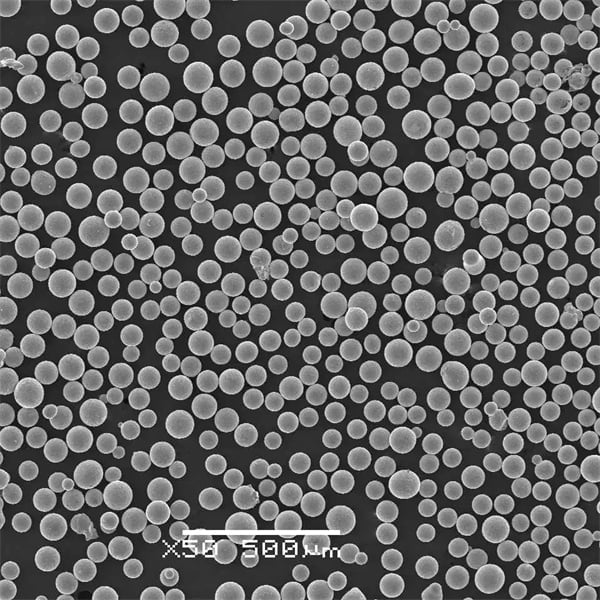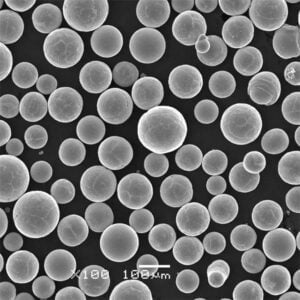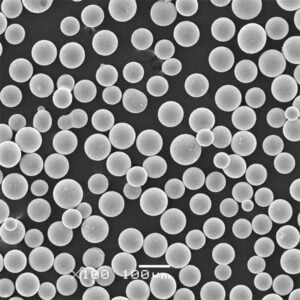Inconel 690 Powder
In the highly demanding world of high-temperature and corrosive environments, few materials can match the exceptional performance of Inconel 690 powder. This premium nickel-chromium alloy powder has garnered a reputation for its remarkable resistance to a wide range of harsh conditions, making it an indispensable choice for industries where reliability and durability are paramount.
Low MOQ
Provide low minimum order quantity to meet different needs.
OEM & ODM
Provide customized products and design services to meet unique customer needs.
Adequate Stock
Ensure fast order processing and provide reliable and efficient service.
Customer Satisfaction
Provide high quality products with customer satisfaction at the core.
share this product
Table of Contents
In the highly demanding world of high-temperature and corrosive environments, few materials can match the exceptional performance of Inconel 690 powder. This premium nickel-chromium alloy powder has garnered a reputation for its remarkable resistance to a wide range of harsh conditions, making it an indispensable choice for industries where reliability and durability are paramount.
Overview: Inconel 690 Powder at a Glance
Before we delve into the intricacies of this remarkable material, let’s take a quick look at the key features that make Inconel 690 powder stand out:
- A nickel-chromium alloy with excellent resistance to oxidation, carburization, and other forms of high-temperature corrosion
- Exceptional mechanical strength and toughness, even at elevated temperatures
- Superb resistance to stress corrosion cracking in various environments
- Low thermal expansion and high thermal conductivity
- Retains its impressive properties even after prolonged exposure to extreme conditions
With such an impressive array of characteristics, it’s no wonder that Inconel 690 powder has become a go-to material for applications that demand the highest levels of performance and reliability.
Composition and Properties
To truly appreciate the exceptional qualities of Inconel 690 powder, we must first understand its composition and the unique properties that arise from this carefully engineered alloy.
| Element | Composition (%) |
|---|---|
| Nickel | 58.0 min |
| Chromium | 27.0 – 31.0 |
| Iron | 7.0 – 11.0 |
| Niobium | 0.0 – 0.5 |
| Carbon | 0.05 max |
This finely tuned composition yields a material with a remarkable balance of strength, ductility, and corrosion resistance. Let’s take a closer look at the key properties that set Inconel 690 powder apart:
| Property | Value |
|---|---|
| Density | 8.19 g/cm³ |
| Melting Point | 1343°C (2449°F) |
| Tensile Strength (at Room Temperature) | 758 MPa (110 ksi) |
| Yield Strength (at Room Temperature) | 372 MPa (54 ksi) |
| Elongation (at Room Temperature) | 45% |
| Hardness | 88 HRB |
| Thermal Conductivity | 11.4 W/m·K (at 100°C) |
| Thermal Expansion Coefficient | 13.9 x 10^-6/°C (between 21-538°C) |
With its impressive combination of mechanical strength, corrosion resistance, and thermal properties, Inconel 690 powder is well-equipped to handle even the most demanding environments.
Where Inconel 690 Powder Shines
The exceptional properties of Inconel 690 powder make it an ideal choice for a wide range of industrial applications where harsh conditions are the norm. Let’s explore some of the key areas where this remarkable material excels:
| Application | Details |
|---|---|
| Chemical Processing | Resistant to a wide range of corrosive chemicals, making it suitable for equipment like heat exchangers, reactors, and piping systems. |
| Nuclear Power Generation | Widely used in nuclear reactor components due to its ability to withstand high temperatures, pressures, and radiation exposure. |
| Aerospace and Gas Turbine Engines | Its high-temperature strength and oxidation resistance make it suitable for components like combustion chambers, turbine blades, and exhaust systems. |
| Oil and Gas Exploration | Ideal for downhole tools, wellhead equipment, and other components exposed to harsh environments like sour gas and high temperatures. |
| Petrochemical and Refining | Commonly used in equipment like furnace tubing, heater tubes, and catalytic reformers due to its resistance to carburization and coking. |
With its unparalleled performance in challenging environments, Inconel 690 powder has become an indispensable material across a wide range of critical industries.
Specifications, Grades, and Standards
To ensure consistent quality and performance, Inconel 690 powder is available in various specifications, grades, and standards. Here’s a quick overview:
| Specification/Grade | Description |
|---|---|
| UNS N06690 | Standard specification for Inconel 690 alloy from the Unified Numbering System (UNS) |
| AMS 5590 | Aerospace Material Specification for nickel-chromium alloy powder |
| AMS 5589 | Aerospace Material Specification for nickel-chromium alloy ingot, bar, and billet |
| ASTM B166 | Standard specification for Inconel 690 alloy from the American Society for Testing and Materials (ASTM) |
These specifications and standards ensure that Inconel 690 powder meets the stringent requirements for composition, mechanical properties, and performance in various industries.
Inconel 690 Powder Suppliers and Pricing
With its widespread use across numerous industries, Inconel 690 powder is readily available from a variety of suppliers. However, it’s essential to source this premium material from reputable manufacturers to ensure consistent quality and performance.
| Supplier | Description | Pricing (Approximate) |
|---|---|---|
| Carpenter Technology | A leading producer of premium specialty alloys, including Inconel 690 powder. | $50 – $70 per pound |
| Special Metals | A renowned supplier of high-performance alloys and superalloys. | $55 – $75 per pound |
| ATI Metals | A global producer of specialty materials, including nickel-based alloy powders. | $60 – $80 per pound |
| Sandvik Materials Technology | A trusted provider of advanced metallic and ceramic materials. | $65 – $85 per pound |
Pricing for Inconel 690 powder can vary depending on factors such as quantity, grade, and supplier. It’s always advisable to contact multiple suppliers for accurate pricing and availability.
Pros and Cons: Weighing the Advantages and Limitations
Like any material, Inconel 690 powder has its strengths and weaknesses. Let’s take an objective look at the pros and cons to help you make an informed decision:
| Pros | Cons |
|---|---|
| Exceptional resistance to high-temperature corrosion and oxidation | Relatively high cost compared to some other alloys |
| Excellent mechanical strength and toughness, even at elevated temperatures | Difficult to machine and fabricate due to its high strength |
| Superb resistance to stress corrosion cracking in various environments | Limited availability and long lead times from suppliers |
| Low thermal expansion and high thermal conductivity | Requires specialized welding techniques and procedures |
| Retains properties after prolonged exposure to extreme conditions |
While the advantages of Inconel 690 powder are numerous and compelling, its limitations should also be carefully considered, particularly in terms of cost and fabrication challenges.
FAQs
| Question | Answer |
|---|---|
| What is the primary advantage of Inconel 690 powder over other nickel-based alloys? | Inconel 690 powder offers superior resistance to stress corrosion cracking, making it an excellent choice for applications in highly corrosive environments. |
| Can Inconel 690 powder be used in additive manufacturing processes like 3D printing? | Yes, Inconel 690 powder is commonly used in additive manufacturing processes like powder bed fusion and directed energy deposition. |
| How does the thermal conductivity of Inconel 690 powder compare to other high-temperature alloys? | Inconel 690 has a relatively high thermal conductivity, which helps dissipate heat more efficiently in high-temperature applications. |
| What are the typical post-processing steps required for components made from Inconel 690 powder? | Common post-processing steps include heat treatment, hot isostatic pressing (HIP), and surface finishing techniques like grinding or polishing. |
| Are there any notable limitations or drawbacks to using Inconel 690 powder in certain applications? | While highly capable, Inconel 690 powder can be challenging to machine and weld, and its high cost may limit its use in some applications. |
| Can Inconel 690 powder be recycled or reused after initial use? | Yes, Inconel 690 powder can often be recycled and reused, provided it meets the necessary composition and quality standards. |
Get Latest Price
About Met3DP
Product Category
HOT SALE
CONTACT US
Any questions? Send us message now! We’ll serve your request with a whole team after receiving your message.

Metal Powders for 3D Printing and Additive Manufacturing
COMPANY
PRODUCT
cONTACT INFO
- Qingdao City, Shandong, China
- [email protected]
- [email protected]
- +86 19116340731












